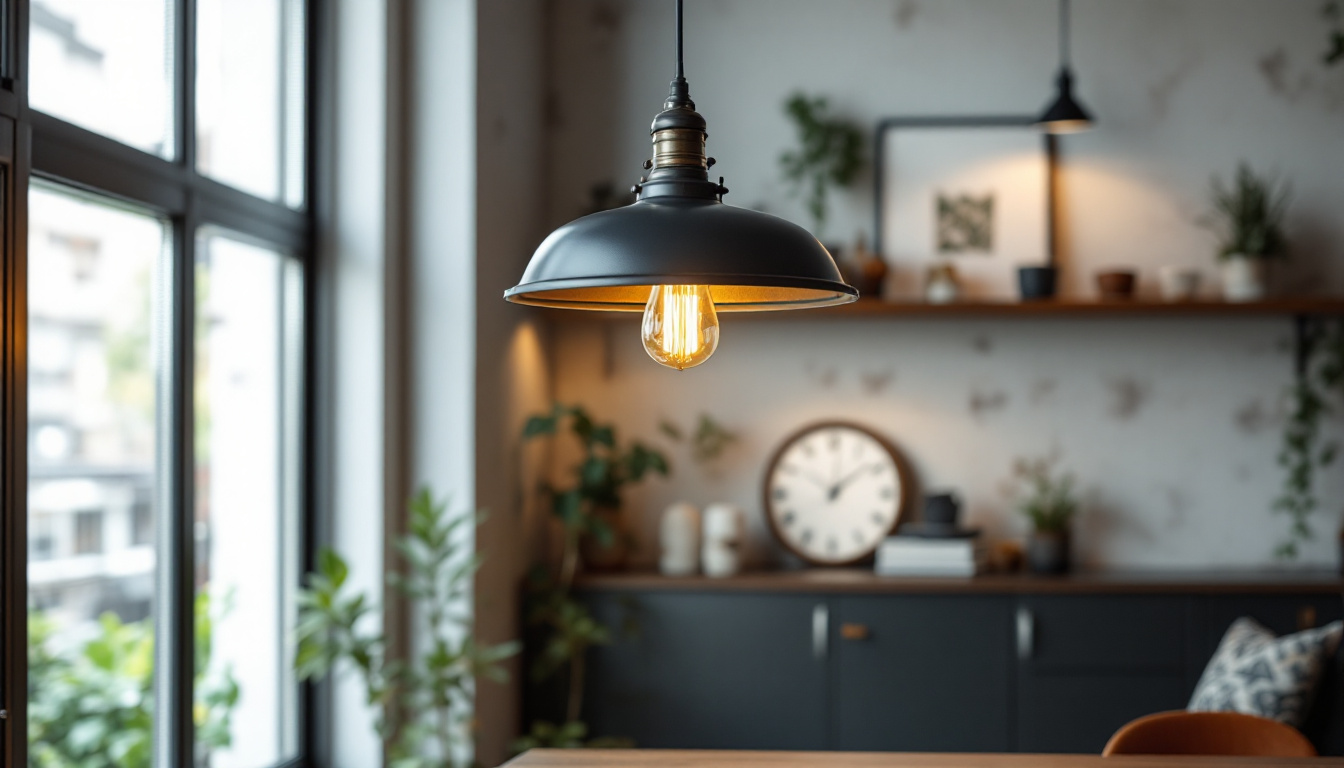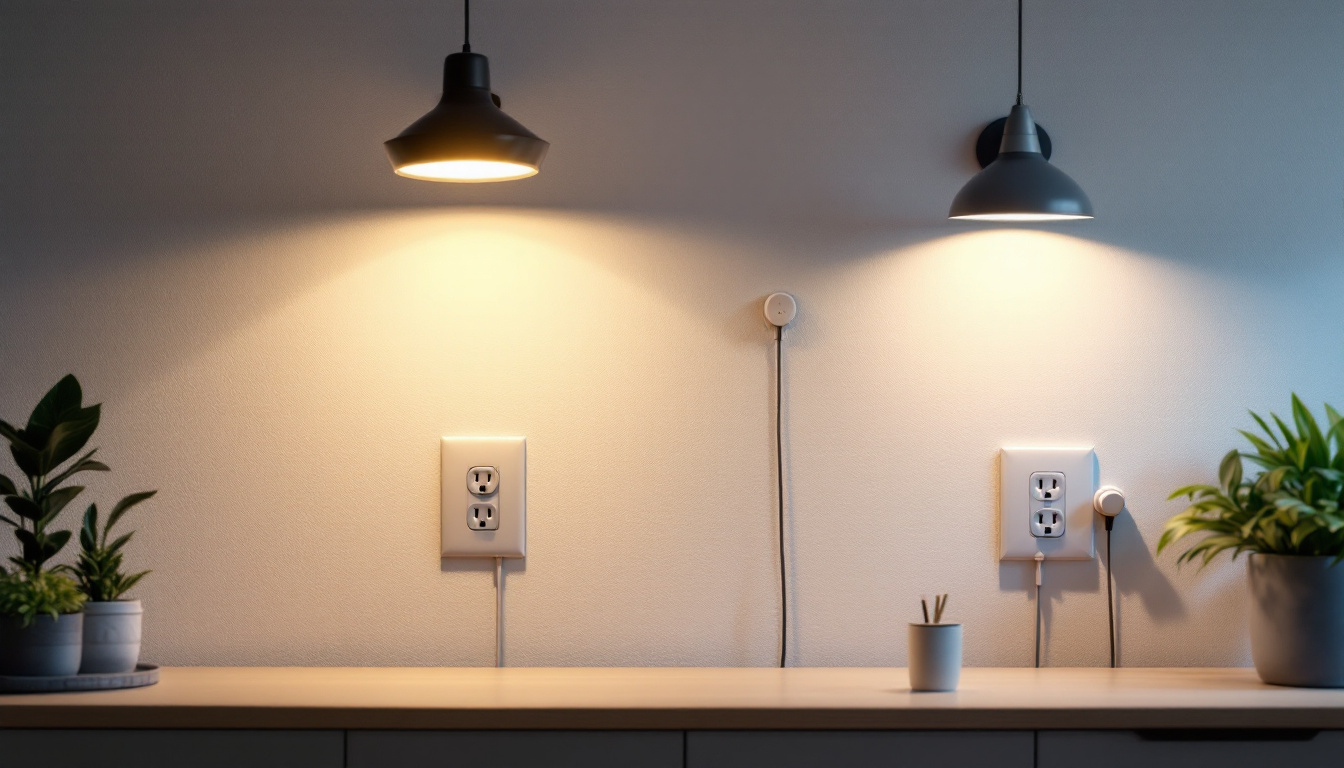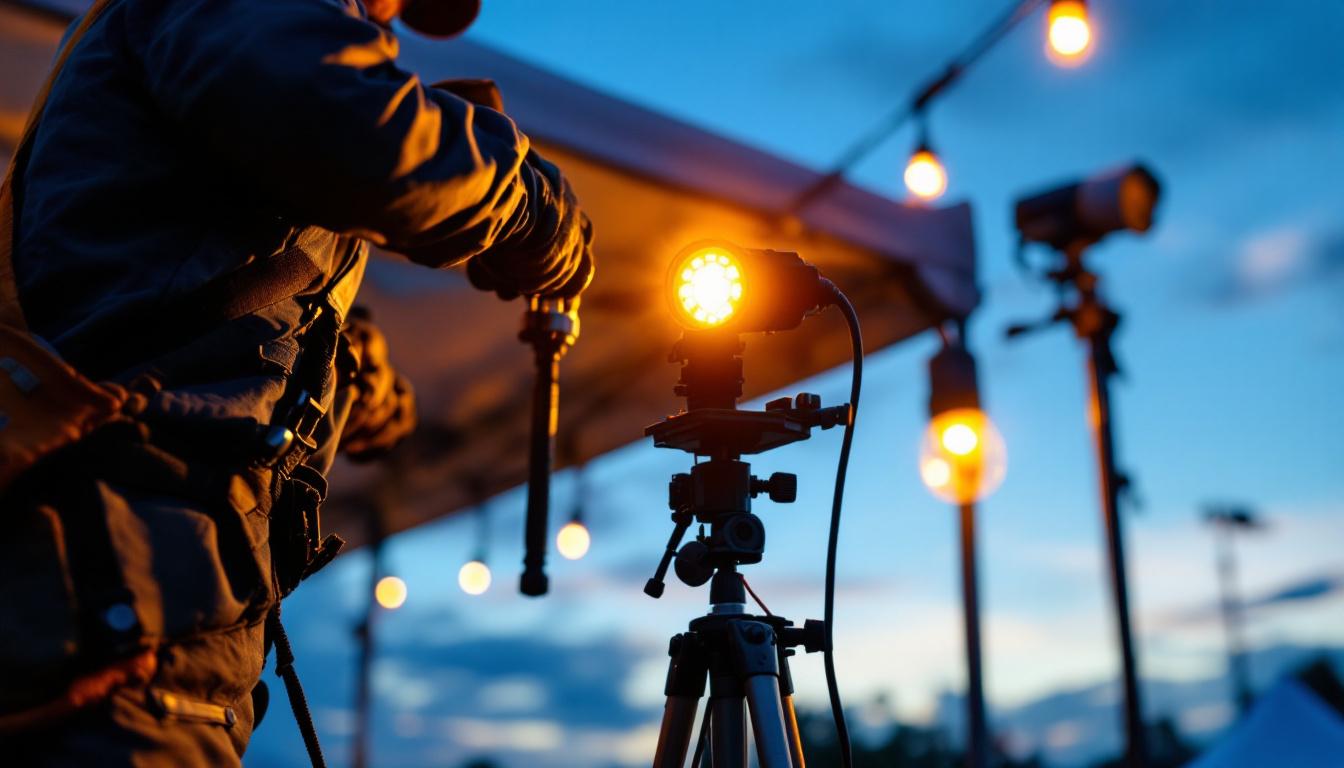
Industrial hanging lamps have become a staple in modern lighting design, combining functionality with aesthetic appeal. These fixtures often draw inspiration from the utilitarian designs of factories and warehouses, making them a popular choice for both residential and commercial spaces. Their robust construction and unique styles can transform any environment, adding character and charm.
Understanding the various aspects of industrial hanging lamps is essential for lighting contractors who aim to provide their clients with the best solutions. This article delves into the types, features, and benefits of industrial hanging lamps, equipping professionals with the knowledge needed to make informed decisions.
One of the defining characteristics of industrial hanging lamps is their ability to blend seamlessly with a variety of interior styles. Whether it’s a sleek modern kitchen, a rustic farmhouse dining area, or a trendy urban loft, these lamps can enhance the overall aesthetic while providing ample illumination. Many designs feature materials such as metal, glass, and wood, which not only contribute to their durability but also allow for a wide range of finishes—from polished chrome to weathered bronze—catering to diverse tastes and preferences.
Moreover, the versatility of industrial hanging lamps extends beyond their design; they are often equipped with adjustable features that allow for customization in height and intensity. This adaptability makes them ideal for different settings, whether suspended over a kitchen island, illuminating a cozy reading nook, or serving as statement pieces in a commercial space. Additionally, many modern industrial lamps incorporate energy-efficient LED technology, providing a sustainable lighting solution that reduces energy consumption while maintaining the warm, inviting glow that these fixtures are known for.
Industrial hanging lamps come in various designs and styles, each suited for different applications. Familiarity with these types can help contractors recommend the most appropriate options based on client needs and space requirements.
Pendant lights are perhaps the most recognizable type of industrial hanging lamp. They typically feature a single bulb suspended from a chain or rod, making them versatile for various settings. Available in a multitude of designs, from vintage to modern, pendant lights can serve as statement pieces or subtle accents.
These fixtures can be used in kitchens, dining areas, or even commercial spaces like cafes and restaurants. Their adjustable height allows for customization, ensuring optimal illumination while enhancing the overall decor.
Cluster lights take the concept of pendant lighting to a new level by grouping multiple fixtures together. This design creates a visually striking focal point, ideal for larger spaces where a single pendant may feel inadequate. Cluster lights can vary in size, shape, and arrangement, allowing for endless creative possibilities.
When installed in dining rooms or entryways, cluster lights not only provide ample illumination but also serve as a conversation starter, showcasing the unique style of the space.
For those looking to make a bold statement, industrial chandeliers blend the grandeur of traditional chandeliers with the ruggedness of industrial design. These fixtures often feature multiple light sources and intricate designs, making them suitable for larger rooms or open-concept spaces.
Industrial chandeliers can be an excellent choice for dining rooms, lobbies, or even commercial venues, where they can create an inviting atmosphere while providing sufficient lighting.
When selecting industrial hanging lamps, several key features should be considered. Understanding these characteristics can help contractors guide their clients toward the best options for their specific needs.
Industrial hanging lamps are typically made from durable materials such as metal, glass, or even wood. Metal fixtures, often in finishes like brushed nickel, copper, or matte black, are particularly popular for their ability to withstand wear and tear while maintaining a sleek appearance.
Glass elements can add elegance and soften the overall look, while wooden accents can introduce warmth and texture. The choice of material will significantly impact the lamp’s aesthetic and functionality, so it’s crucial to consider the overall design theme of the space.
Another important feature to consider is bulb compatibility. Many industrial hanging lamps are designed to accommodate various bulb types, including LED, incandescent, and fluorescent options. LED bulbs, in particular, are favored for their energy efficiency and longevity, making them a practical choice for both residential and commercial applications.
Contractors should ensure that the chosen lamp supports the desired bulb type to maximize performance and minimize energy costs.
Adjustability is a key feature in industrial hanging lamps, allowing for customization based on the specific needs of the space. Some fixtures come with adjustable cords or rods, enabling contractors to modify the height of the lamp according to ceiling height or personal preference.
This flexibility is particularly beneficial in spaces with varying ceiling heights, ensuring that the light is positioned optimally for both functionality and aesthetics.
The popularity of industrial hanging lamps can be attributed to their numerous benefits. Understanding these advantages can help contractors effectively communicate their value to clients.
One of the standout features of industrial hanging lamps is their versatility. They can seamlessly blend into various design styles, from modern and minimalist to rustic and vintage. This adaptability makes them suitable for a wide range of applications, whether in residential settings or commercial environments.
By offering a diverse selection of styles, contractors can cater to different client preferences, ensuring that each space reflects the desired aesthetic.
Industrial hanging lamps can significantly enhance the ambiance of a space. Their unique designs and warm lighting create an inviting atmosphere, making them ideal for social settings such as dining areas, lounges, and cafes.
Moreover, the strategic placement of these lamps can highlight architectural features or artwork, adding depth and character to the environment.
Beyond aesthetics, industrial hanging lamps provide functional lighting solutions. Many fixtures are designed to deliver focused illumination, making them suitable for tasks such as reading or cooking. Their ability to distribute light evenly across a space ensures that areas remain well-lit and functional.
Contractors can leverage this functionality to recommend specific fixtures for particular tasks, enhancing the overall usability of the space.
Proper installation is crucial for maximizing the benefits of industrial hanging lamps. Contractors should be aware of several key considerations to ensure a successful installation process.
Before installation, it is essential to assess the existing electrical wiring in the space. Ensuring that the wiring is up to code and capable of supporting the new fixture is critical for safety and functionality. If necessary, upgrades or modifications may be required to accommodate the new lighting solution.
Additionally, following safety protocols during installation is paramount. This includes turning off the power supply and using appropriate tools to avoid accidents.
Strategic placement and spacing of industrial hanging lamps can significantly impact their effectiveness. Contractors should consider the layout of the space, ensuring that the lamps are positioned to provide optimal illumination without causing glare or shadows.
In open-concept areas, grouping multiple fixtures can create a cohesive look while ensuring that all zones are adequately lit. Taking measurements and planning the arrangement beforehand can lead to a more successful outcome.
Choosing the right height for installation is crucial, especially in spaces with varying ceiling heights. As a general guideline, hanging fixtures should be positioned at least 30 inches above dining tables or countertops to allow for comfortable clearance.
Additionally, considering the scale of the fixture in relation to the room size is essential. A large chandelier may overwhelm a small space, while a tiny pendant may get lost in a vast room. Striking the right balance will enhance the overall aesthetic and functionality.
To ensure the longevity and performance of industrial hanging lamps, proper maintenance and care are essential. Contractors can offer valuable advice to clients on how to keep their fixtures in optimal condition.
Dust and grime can accumulate on light fixtures over time, diminishing their brightness and overall appeal. Regular cleaning is necessary to maintain the lamp’s appearance and functionality. Using a soft cloth and mild cleaning solution can help remove dirt without damaging the finish.
For fixtures with intricate designs or glass components, extra care may be needed to avoid scratching or breaking delicate parts.
Replacing bulbs promptly when they burn out is crucial for maintaining consistent lighting levels. Contractors should educate clients on the importance of using the correct bulb type and wattage to avoid potential issues.
Additionally, recommending energy-efficient options, such as LED bulbs, can help clients save on energy costs while ensuring optimal performance.
Encouraging clients to conduct periodic inspections of their lighting fixtures can help identify any potential issues before they become significant problems. Checking for loose connections, signs of wear, or corrosion can prevent malfunctions and ensure the safety of the installation.
By staying proactive with maintenance, clients can enjoy the benefits of their industrial hanging lamps for years to come.
Industrial hanging lamps offer a unique blend of style and functionality, making them an excellent choice for various applications. By understanding the different types, key features, and benefits of these fixtures, lighting contractors can provide valuable insights to their clients, ensuring that they select the perfect lighting solutions for their spaces.
From installation considerations to maintenance tips, equipping clients with the right knowledge will enhance their experience and satisfaction. As industrial design continues to evolve, staying informed about the latest trends and innovations in lighting will empower contractors to remain competitive in the industry.
Ready to elevate your lighting game with industrial hanging lamps that fuse style with functionality? Look no further than LumenWholesale, where we provide contractors with the highest quality, spec-grade lighting products at unbeatable wholesale prices. Say goodbye to local distributor markups and hello to our premium selection that meets rigorous industry standards. With free shipping on bulk orders, you can trust that you’re getting the best value without any hidden fees. Make your next project shine with the perfect blend of quality, affordability, and convenience. Explore our collection now and secure Wholesale Lighting at the Best Value.

Discover how the innovative 120 Plug can revolutionize cost-efficiency for lighting contractors.

Discover the common oversights lighting contractors make when installing wall outlets.

Discover essential tips and expert advice on LED adhesive strip lighting tailored for lighting contractors.

Discover the art of mastering temporary lighting with expert insights for lighting contractors.